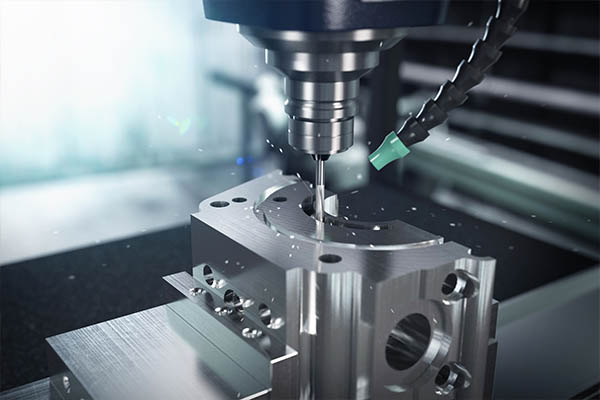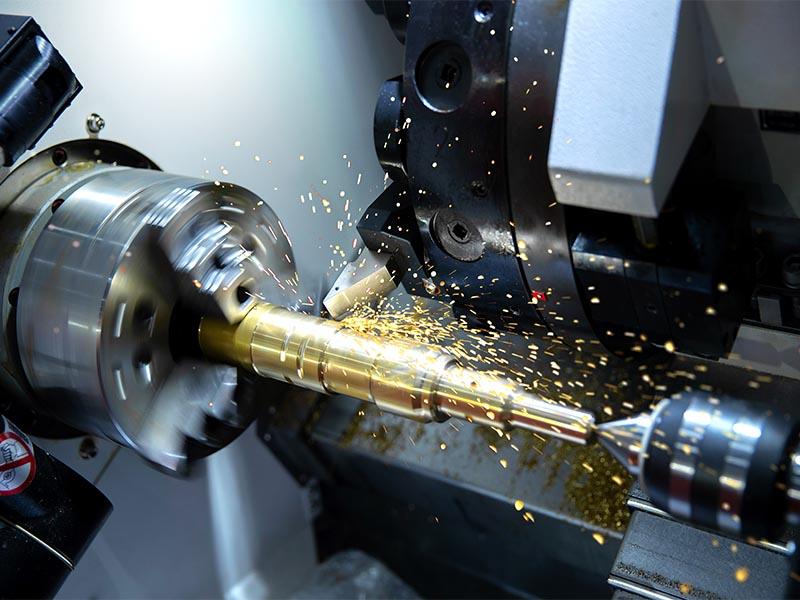CNC Milling Services: A Revolution in Precision Manufacturing
CNC Milling Services: A Revolution in Precision Manufacturing
Blog Article
CNC cutting and milling has transformed manufacturing, offering the most precise and effective way to make components and parts across a wide array of industries. This cutting-edge technology utilizes computers to control machinery that performs cutting, drilling, milling, and other operations on various substances like metals, plastics and wood. The level of precision achieved through CNC milling is unrivaled that allows intricate plans to be made in a highly precise manner. By replacing manual intervention with automation, CNC machines have significantly decreased the chance of human errors and have increased production speed. The combination of precision and efficacy has made CNC the machining process a crucial component of the modern manufacturing process.
What lies at the heart of CNC Machining is the capacity to convert digital designs into actual parts. Utilizing computer-aided design (CAD) software designers and engineers create intricate 3D models of their desired component. These digital designs are then translated into precise instructions, called "G-code," which the CNC machine uses to execute processes like cutting or milling. This digital control allows for an extremely high degree of precision that manual milling cannot achieve. Additionally, after a design is programed in the machine it is able to be reproduced precisely, creating identical parts in large quantities without manual adjustments. It's crucial for repeatability in the industries where precision and consistency are essential.
The effectiveness of CNC machine is a key aspect in its broad adoption. The traditional machining techniques require skilled operators to manually control the machinery, adjust the settings and switch equipment for every operation. It is not only time-consuming but also prone to human error. CNC machining on the contrary, can automate the process, which allows machines to operate continuously and with little supervision. When the software is installed and the machine is equipped with the material needed and equipment, it is able to perform several actions without interruption, significantly shortening the production process. CNC machines can also be capable working 24/7, making the perfect machines for large-scale production runs. This level of efficiency enables companies to meet deadlines, boost their production as well as reduce the cost of labor, all while maintaining high-quality standards.
Another key benefit of CNC machining is its efficiency. With the help of automation, machining it is possible for manufacturers to drastically reduce the time it takes to create parts. This leads to faster cycles of production and cost savings. Because CNC machines operate 24/7 with minimal human supervision, they can increase output without compromising the quality. This level of automation also eliminates the danger that human errors can occur, and also ensures that every part manufactured meets precisely the requirements specified in the digital design. Additionally, CNC machining allows for "lights-out" manufacturing, where machines are still in operation even after workers have left which increases productivity while cutting down on labor costs. To obtain added details kindly visit www.premiumparts.com/services/cnc-machining
Apart from the speed and accuracy, CNC machining is valued because of its efficiency, particularly when it comes to large-scale production runs. After the initial set-up and programing of the machine are completed manufacturing additional components requires minimal input, reducing overall production costs. Manufacturers working with costly metals like aerospace grade alloys, CNC is a method of reducing waste by optimizing the cutting process, ensuring that each part produces with little loss of materials. Its precision and efficacy allow CNC the ideal tool to both prototypes and large-scale production since it permits companies to rapidly test and tweak designs with minimal production cost.
The impact on the environment of CNC manufacturing is another factor worth taking into consideration. Traditional manufacturing processes typically result in a substantial amount of waste material, CNC machines are well-known for their high efficiency. Through precise cutting and shaping material, CNC machining minimizes waste, reducing both material costs and environmental footprint. In addition, automation in CNC machines helps reduce energy use when compared with manual processes. A lot of modern CNC machines are built to be sustainable, with energy-efficient motors and equipment to reduce their carbon footprint. This means that CNC machineries an eco-friendly choice for companies looking for ways to decrease waste and conserving resources.